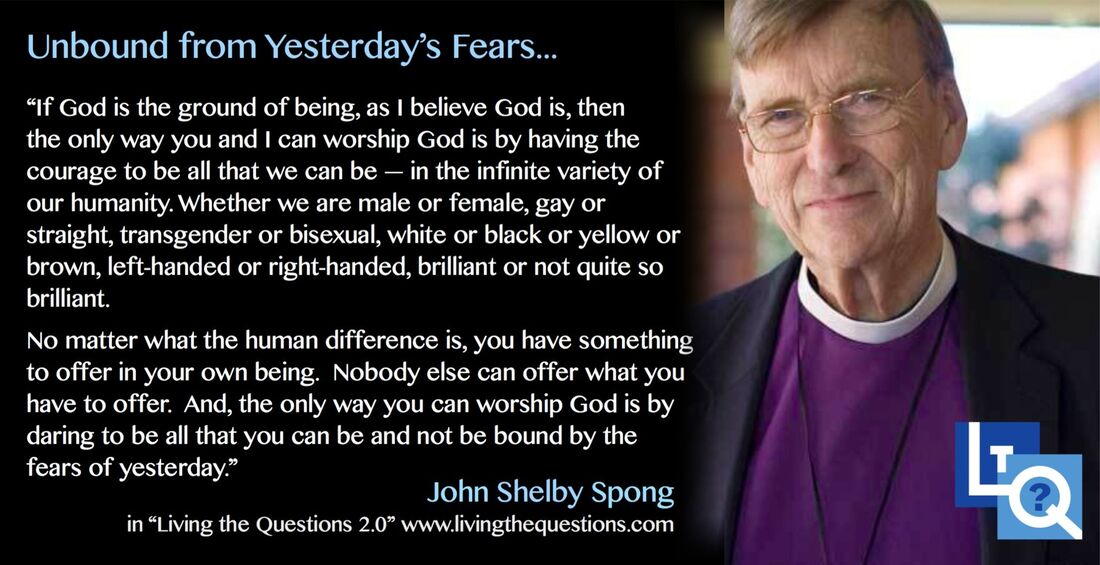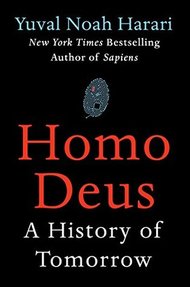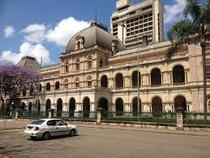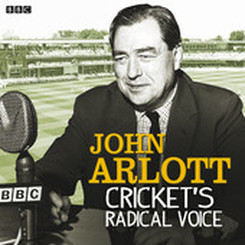 It was good to attend the first day of the APSA Workshop on Religion and Politics After Marriage Equality at Macquarie University this week - although I was unable due to illnes to be at the second day - with many thanks to Dr Eleneie Poulos and Kate Gleeson for putting together such a brilliant program, and to all the other speakers for sharing their insights. Much to think about on this topic with a new federal government. My own paper - 'On climbing out from under the bus: queer faith futures in a cisgender world' can be read here
0 Comments
 Dare to be indeed. The first time I heard Jack Spong speak was in October 1992 in Methodist Central Hall in London - at the launch of Elizabeth Stuart's then highly controversial landmark LGBT+ prayer book 'Daring to Speak Love's Name: A Gay and Lesbian Prayer Book'. They were historic and testing times. Two weeks later, after our long struggles, the Church of England would finally vote for women's ordination but opposition to queer people was so much more intense. I'd traveled down from Gateshead in England's north east for the occasion, and was one of 300 or so queer people and allies who shared in what was a powerful and moving show of solidarity titled ''Prayer, Protest, Politics: A Celebration of Who We Are and Our Relationships.'' The evening featured an informal blessing of queer relationships, prayers and recitation of a ''Declaration of Coming Out,'' as we danced, cried and hugged together. Helped not least by negative remarks by the then Archbishop of Canterbury, George Carey, SPCK, the intended publisher, had pulled the plug on the book. Thankfully however, Hamish Hamilton Ltd (part of Penguin) stepped in at the last minute and the book thus defiantly and joyfully came to birth (more on the story here). Whilst other Church leaders ran from the fray, or hid behind kindly but insufficent words, Bishop Spong stood on the stage that evening and shared his own commitment as true ally. Those kinds of actions matter. I'm grateful to him for many other ways in which he helped set people free from fears into new life. As much as as his words, such actions however really stay with me. In his death, as in his life, he continues to ask us, where are you when life and history is to be made and shown? Dare we continue to speak love's name when and where it is needed? #deedsnotwordsalone  Looking into the future is notoriously difficult, as any historian knows. The most we can really do is to be as honest and perspicacious as we can about our past and present and extrapolate as best we can with tempered imagination. Yuval Noah Harari (professor of history at the Hebrew Museum in Jerusalem) does a good job of this in his recent book Homo Deus: A History of Tomorrow. It is certainly a challenging vista he opens up. Due to the speed and scale of unprecedented change, he argues that homo sapiens as we know ourselves will not exist in a hundred years. This is due to major technological shifts, particularly in biotechnology and artificial intelligence, which threaten to make religion and various forms of humanism redundant. For we appear to be at the beginning of a 'data-religion' age, in which the algorithms and a small number of their elite human 'managers' (in corporations like Google and Facebook) become increasingly dominant. Harari is not unappreciative of the past positive, as well as negative, evolutionary contribution of both religion and humanism. Religion, for example in its Christian form, was a powerful force historically in enabling human development through doctrines such as the 'imago dei' in every being, and in its earlier contributions to enabling technology, society and art. Yet its constructive role is essentially at an end, hastened by its inability to keep up, never mind engage, with today's scientific and technological drivers. Humanism, in whatever form, also appears to be very long in the tooth as an ideological bearer of the future. For example, modern democracy - a central humanist fruit - cannot operate as efficiently or inteiligently as a contemporary algorithm in working out preferences, policies and directions. Intelligence increasingly appears to be separable from consciousness, another religious and humanist core principle. In a world where death (for some) can be further postponed, what then also happens to meaning? Harari's work asks powerful questions of us. Like his previous dazzling bestseller Sapiens, Homo Deus is a product of great scholarship, crossing many disciplines, and written in lively, vivid language. Its author is no lightweight thinker. Indeed he claims to meditate for two hours a day and goes on extended retreats, whilst, being gay, he says, helps him to question received opinions. “Nothing should be taken for granted,” he has said, “even if everybody believes it.” (see further The Guardian 19 May 2017) It is thus both contemplative as well as intellectually attentive. No doubt, like other 'end of history' books, some of his contentions may be misplaced or over-exaggerated, as well as misused by others. Yet we would do well to reflect upon it, if we are at all serious about building on the fruitful aspects of humanism, in its religious or secular forms. What kind of spirituality and politics do we need in our changing bio-technological and data-intelligent world? Humpty Dumpty sat on a wall.
Humpty Dumpty had a great fall. All the Pope’s horses and all the Pope’s men (and women), couldn’t put Humpty together again. For good and ill, the era we know as the Reformation has hugely shaped us. It involved immense fragmentation: both a breaking down and a breaking open. Like Humpty Dumpty, that which went before had ‘a great fall’ and could not be put together again as it had been. Especially within Christian life, it has thus bequeathed so many features we simply take for granted. Some have lasting value. Others are much more questionable. This includes the very existence of different Christian traditions, in what, from the 19th century, we have termed denominations. This was not, of course, an intended outcome. Indeed, it would have seemed anathema to any Reformer, as well as to the Church of Rome. Yet it is part of our Reformation inheritance. So what do we make of this, for God’s continuing mission? What is worth keeping? How might we move on together? This reflection is not a traditional potted history. Nor does it seek to draw us into comparisons of our different Christian traditions, never mind reassemble past dynamics and rhetoric. Instead, it outlines briefly both vital differences and also important similarities between that age and our own. In doing so, it identifies a number of negative features which often mar our churches and world. It also suggests a number of positive features which can heal and take us forward. Hopefully, in the contemporary spirit of ‘receptive ecumenism’, these may then provide a basis for assessing which Reformation gifts we will own together and which we will leave behind. What else, we might then ask, do we need for our journey onwards today?...  The recent Queensland election was a stunning reversal of the equally historic LNP landslide (at least in seats) of three years before. Although it has left the State Parliament in an interesting and acute balance of political forces, it was an emphatic rejection both of the authoritarian style of the Campbell Newman government and of the proposed policies of the lease of state assets. Is this simply a sign of the fickleness of the contemporary electorate and/or also a sign of a shift in people's attitudes to the politics of austerity? Across the world there are a few signs of a turning away from the kind of politics and economics which reflect the relentless advocacy of large corporations and wealthy interests and which have steadily and disproportionately increased the wealth and power of the rich in comparisons to the rest of us. In both Greece and Spain, in the face of economic crisis, the general populace has begun to fight back against the recipes of more austerity forced upon them, supporting parties which have had the courage to take another line. It is too soon to say if this might spread. Queenslanders certainly can hardly be said to have suddenly become born again Socialists, particularly as the Labor state leadership is also politically cautious and committed to the further development of some problematic environmental and economic schemes. Yet when the Federal Government still talks about the problem being its communication methods rather than its concrete policies, one wonders if it is really listening. Its budget last year was a disaster in alienating many of the less wealthy, even before crass and clumsy remarks by the Treasurer about the poor and the most recent farcical announcement of a knighthood for Prince Philip. Paul Kelly published his song the Land of the Little Kings back in 1998 but it still speaks powerfully today. It would be nice to think that the people have finally decided to do something about it, even if politicians may still have tin ears.  It is said that, faced by an immigration officer in apartheid-bound South Africa, the great(est) English cricket commentator John Arlott heard the question asking 'race' and simply replied 'human'. I have a similar reaction to my Prime Minister's encouragement to belong to 'Team Australia'. In the face of the breadth and complexities of international politics, violence and the abuse of religion, the only 'team' I would really want to belong to is 'Team Humanity'. Yet, like John Arlott, I wonder whether such mixing of politics with sport is actually good at all. It both diminishes the seriousness of the one and destroys what is life-giving in the other. This is not to say that the politics of sport is not a serious and important matter. John Arlott, a lifelong Liberal in the very best British sense, was himself a major opponent of apartheid within cricket, not least in his efforts to support the young, Cape Coloured, Basil D'Oliveira and to combat D'Oliveira's dismissive treatment by the cricket establishment at home and abroad. For power corrupts in sport, as it does anywhere else. FIFA is just one of today's preeminent modern examples. Sport is ultimately however only entertainment. It is not war or violence, even though it may often be a relatively peaceful way of handling those impulses. Tony Abbott is quite right that we need to work together to address violence and exclusion. Yet over-use of sporting metaphors is not entirely healthy, especially when it risks dividing those of different faith, race or national background into separate camps and also obscures our failures to meet our international obligations to refugees. |
AuthorJo Inkpin is an Anglican priest serving as Minister of Pitt St Uniting Church in Sydney, a trans woman, theologian & justice activist. These are some of my reflections on life, spirit, and the search for peace, justice & sustainable creation. Archives
July 2024
Categories
All
|
 RSS Feed
RSS Feed